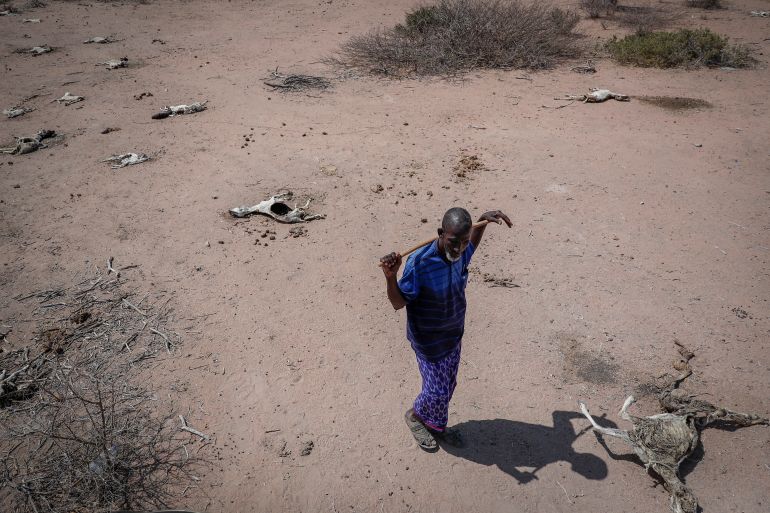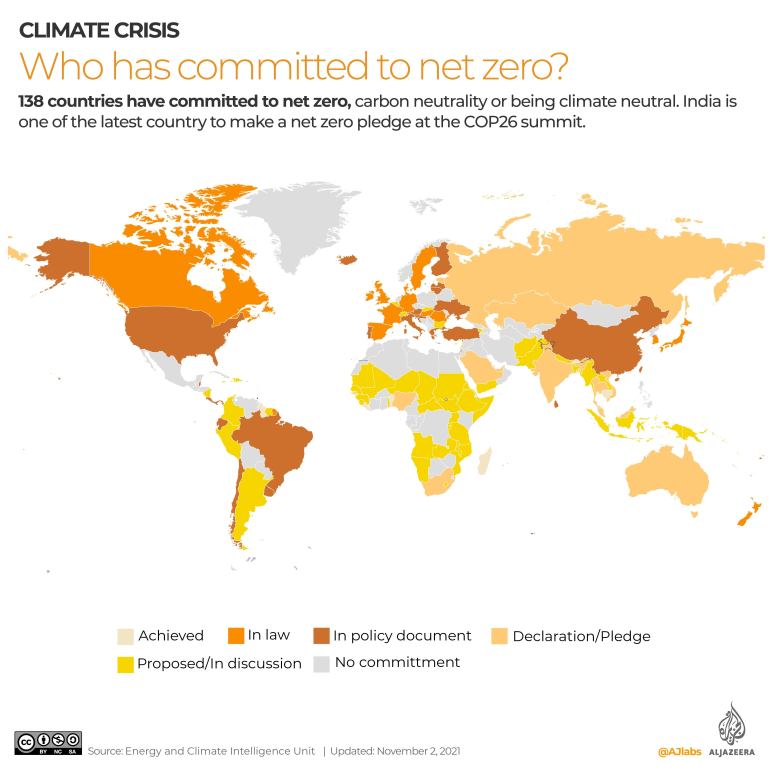Climate vulnerable in the Global South demand COP26 action
Those on the front line of extreme weather say words from world leaders are no longer enough as the climate emergency devastates vulnerable nations.

Glasgow, Scotland – People from nations most vulnerable to the wrath of climate change demanded immediate action and reparations from rich countries that fuelled the climate emergency.
The 55-nation Climate Vulnerable Forum, which advocates for countries in the Global South facing the worst impacts of the climate crisis, told world leaders that words are no longer enough as the climate crisis intensifies.
Keep reading
list of 4 itemsMorocco: MENA’s rare climate change success story
Can India actually deliver on its bold climate promises?
The Global South does not need debt. We need climate justice
“This is a global justice issue because the poorest and most vulnerable are by far the hardest hit, but also the least responsible [for climate change],” Abul Kalam Azad from Bangladesh told a press conference.
Bangladesh is already suffering through the unfolding climate disaster. It is estimated by 2050 about 17 percent of the South Asian nation’s coastlines will be inundated as sea levels rise.
About 30 million people will be forced to move inland – an estimated six million already have.
‘Fighting for lives’
Another nation suffering through the crisis is Kenya, where an estimated two million people face hunger because of climate change. Estimates suggest the temperature could rise 2.5 degrees Celsius by 2050 – further devastating food production in the East African country.
“There is a lot to fight for at COP26, but most importantly we are here because we are fighting for the lives and livelihoods that are at stake by the decisions going to be made at COP26,” said Elizabeth Wathuti, a Kenyan climate activist.
Her message to world leaders was: “Every moment you delay, more people will suffer.”
Developed nations are overwhelmingly responsible for the climate crisis, having produced about 80 percent of greenhouse gas emissions in the Earth’s atmosphere since the Industrial Revolution.
Members of the Climate Vulnerable Forum – which also includes Ethiopia, Vietnam, the Maldives, and the Philippines – said leaders must commit clearly in writing in COP26’s final document to a “Glasgow Emergency Pact“.
This would include providing $100bn a year from developed nations to developing ones. Rich nations made that financial pledge a decade ago, but have so far failed to deliver to the countries being hammered the most by climate change.
‘Death sentence’
The forum members also demanded stronger moves by nations to cut their gas emissions. The 1.5C temperature-rise benchmark to prevent the worst climate disasters is quickly fading away with only about eight years left to achieve it.
A report by the Climate Action Tracker group noted this week under current promises by nations around the world, temperatures will rise 2.4C by the end of the century.
“A 2.4C world is a death sentence for communities like mine,” said Vanessa Nakate from Uganda. “2.4 degrees is total global devastation, it is suffering, suffering, suffering. It is disaster.”
As temperatures rise, scientists say already extreme weather events will intensify so every tenth of a degree of warming means life or death for climate-vulnerable communities.
‘Where are these people going?’
Harjeet Singh from the Climate Action Network noted 23 million people around the world were forced from their homes because of climate change in 2019. A year later that figure jumped to 30 million.
“Are we asking ourselves where are these people going?” he asked.
Singh said negotiations in Glasgow must produce a global fund – paid for by developed nations that caused the emergency – to assist those around the world suffering through the effects of climate change.
“We urge leaders to step up and move beyond rhetoric to deliver climate justice here and now,” he said.
“The leaders who have come here and made grand announcements about what they’re going to do in the future – 10 years, 20 years, 30 years from now, we cannot trust them if they’re not supporting people right now.”
Getting climate reparations acknowledged in COP26’s final communique is crucial for dozens of nations in the Global South.
“Finance for adaptation is critical, but for many of us in vulnerable countries adapting to climate change is no longer enough. You cannot adapt to starvation, you cannot adapt to extinction,” said Nakate.